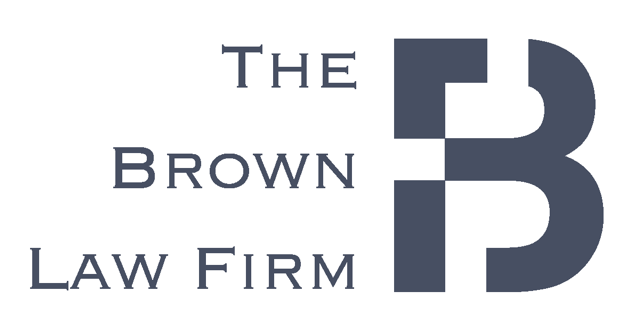Steps to Take If a Ski Resort Denies Your Injury Claim
A beautiful day on the slopes in Steamboat Springs can change in an instant. An unexpected accident can leave you with serious injuries, mounting medical bills, and a long road to recovery. Receiving a letter stating that the ski resort denies your injury claim can feel like a devastating setback. It’s a frustrating and confusing experience, but it is important to remember that a denial is not the final word. You still have options and potential paths forward to seek the compensation you need to heal.
Don’t face a denied claim alone — contact an experienced ski accident lawyer today to protect your rights and pursue the compensation you deserve.
Key Takeaways for What to Do if a Ski Resort Denies Your Injury Claim
- A denial from a ski resort’s insurance company is not the end of the injury claim process.
- The Colorado Ski Safety Act outlines the rights and responsibilities of both skiers and resort operators.
- Documenting everything related to the injury, medical treatment, and correspondence with the resort is vital.
- An injury attorney can help navigate the complex legal landscape after a claim denial.
Why Would a Ski Resort Deny an Injury Claim?
 Receiving a denial can leave you wondering what went wrong. Insurance companies for ski resorts often look for reasons to reject a claim to protect their bottom line. They might argue that your injuries were your own fault or that they resulted from the “inherent dangers” of skiing, a term with a specific legal meaning.
Receiving a denial can leave you wondering what went wrong. Insurance companies for ski resorts often look for reasons to reject a claim to protect their bottom line. They might argue that your injuries were your own fault or that they resulted from the “inherent dangers” of skiing, a term with a specific legal meaning.
Under the Colorado Ski Safety Act, skiers assume certain risks that are considered integral to the sport. These can include things like changing snow conditions, ice, or collisions with other skiers. However, this law also places clear responsibilities on the ski area operator.
A resort might deny a claim for several common reasons, including:
- Alleging the injury was from an inherent risk. They may claim that your fall was due to a patch of ice, which is a known risk, rather than an unmarked hazard they should have addressed.
- Claiming you were skiing recklessly. They might suggest you were out of control, in a closed area, or otherwise violating the skier responsibility code.
- Disputing the severity of your injuries. An insurer may try to argue that your injuries are not as serious as you claim or were caused by a pre-existing condition.
These are just a few examples, and it’s important to understand that the resort’s initial assessment does not have to be the final outcome.
What to Do After a Ski Resort Denies Your Injury Claim
When you get that denial letter, it’s easy to feel discouraged. Take a deep breath and shift your focus to being organized and proactive. Your actions in the days and weeks that follow can make a significant difference. Start by gathering all the information and documentation related to your accident and your claim.
Create a dedicated file, either physical or digital, for everything connected to your injury. This includes:
- The official accident report filed by the ski patrol.
- Contact information for any witnesses who saw what happened.
- Photos or videos you took of the accident scene, your equipment, and your injuries.
- All medical records, bills, and receipts for prescriptions or medical devices.
- A copy of the denial letter from the resort or their insurance company.
Having all of this information in one place will help you stay organized and prepare for your next steps.
After you have your documents organized, it is also helpful to keep a simple journal. Write down your day-to-day experiences with your recovery. Note your pain levels, any challenges with daily activities, and how the injury is affecting your work and personal life. This ongoing record can be incredibly valuable for showing the full impact of the accident. Remember to be consistent, as a detailed account can provide a clearer picture than memory alone.
Understanding Negligence in a Ski Accident Case
While skiers accept certain risks, ski resorts are not immune from responsibility. They have a duty to operate the resort in a reasonably safe manner. When they fail to do so and someone gets hurt, it may be a case of negligence. Negligence is a legal term that essentially means someone failed to act with reasonable care, causing harm to another person.
For a ski resort, negligence could involve many different scenarios. It is not just about a skier falling on an icy patch on a trail like Howelsen Hill. It is about whether the resort did something, or failed to do something, that made the environment unreasonably dangerous.
Examples of potential resort negligence include:
- Improperly maintained equipment: A malfunctioning chairlift, tow rope, or rental equipment that leads to an injury.
- Failure to warn of hazards: Not marking or padding obstacles like snowmaking equipment, lift towers, or utility poles.
- Unsafe trail conditions: Not closing a trail when conditions become exceptionally dangerous or failing to properly mark trail difficulty levels.
- Employee error: An accident caused by a ski instructor, lift operator, or snowmobile driver acting carelessly.
Determining whether your injury was caused by an inherent risk or by the resort’s negligence is the key to pursuing a successful claim after a denial.
The Role of a Personal Injury Attorney When a Ski Resort Denies Your Injury Claim
Trying to fight a denial from a large ski resort and its insurance company on your own can feel like an uphill battle. They have teams of people working to minimize payouts. This is where a personal injury attorney who understands Colorado ski law can become your strongest advocate.
An attorney works for you, not the insurance company. Their goal is to protect your rights and help you seek the full compensation you deserve for your medical bills, lost wages, and pain and suffering. They handle the complex legal work so you can focus on what matters most: your health and recovery.
A knowledgeable attorney can assist with your case in many ways:
- Investigating the accident: They can gather evidence, interview witnesses, and work with professionals to reconstruct what happened.
- Navigating Colorado law: They understand the nuances of the Colorado Ski Safety Act and how it applies to your specific situation.
- Handling all communications: They will take over all conversations and negotiations with the insurance company, protecting you from tactics designed to weaken your claim.
Hiring legal representation shows the insurance company that you are serious about your claim and are prepared to fight for a fair outcome.
FAQ for Ski Resort Denies Your Injury Claim
Here are answers to some common questions that arise when a ski resort denies an injury claim.
What is the statute of limitations for a ski injury in Colorado?
In Colorado, the statute of limitations, which is the time limit to file a lawsuit, for most personal injury cases, including ski accidents, is generally two years from the date of the injury. It is critical to act within this timeframe, as waiting too long can prevent you from ever being able to file a claim.
Do I have a case if I signed a waiver on my ski pass?
Waivers are common, but they are not always ironclad. While they may protect a resort from claims arising from inherent risks, they may not protect it from acts of negligence. An attorney can review the specific language of the waiver you signed to determine if it is enforceable in your situation.
What if another skier or snowboarder caused my injury?
If another guest on the mountain collided with you and caused your injury, you may have a claim against that individual. Ski resorts are generally not held responsible for the actions of other skiers, but it’s important to report the incident to ski patrol immediately to identify the other person involved.
Contact Brown Law Firm Today
If a ski resort denied your injury claim, do not give up. You deserve to understand your rights and explore every available option. At Brown Law Firm, our team is committed to helping accident survivors in Steamboat Springs and across Colorado get back on their feet. We understand the physical, emotional, and financial challenges you are facing.
Your consultation is free, and there is no obligation. Let us listen to your story and explain how we can help you fight for the justice and compensation you deserve. Contact our experienced personal injury lawyer today at (970) 871-7400 or through our online form for a free, no-obligation case consultation.
